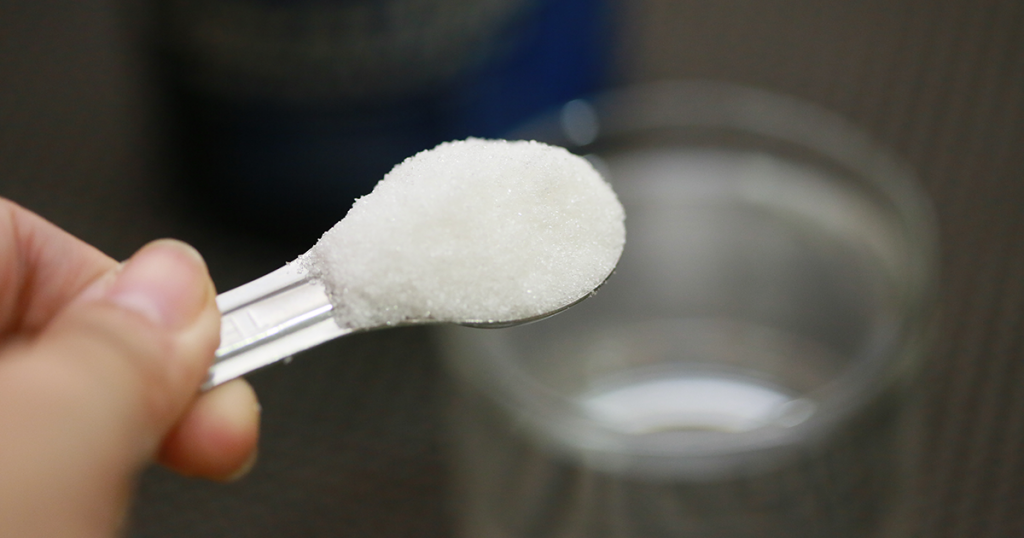Creatine is one of the most popular and widely-researched supplements for boosting muscle growth and high-intensity exercise performance. However, some users report experiencing bloating or water retention after starting creatine. This blog post explores the reasons why creatine may lead to a bloated feeling for certain individuals.

We’ll look at how creatine causes water weight fluctuations, individual physiological factors that influence bloating, as well as strategies to minimize this potential side effect.
Contents
Does Creatine Make You Bloated?
Creatine supplementation can lead to temporary water retention in some individuals, which may cause a feeling of bloating. When you consume creatine, it draws water into your muscles, which can increase their size temporarily. This is typically seen as a positive effect for athletes and bodybuilders because it can enhance muscle fullness and strength.
However, the degree of bloating varies among individuals. Some people may not experience any bloating at all, while others may notice a slight increase in water retention, leading to feelings of bloating or puffiness, particularly during the loading phase of creatine supplementation.

It’s important to note that this bloating is generally temporary and usually resolves once the loading phase is complete and the body adjusts to the creatine supplementation. Staying well-hydrated can help minimize any bloating effects associated with creatine supplementation.
Who Does Creatine Work The Best For?
Creatine seems to offer the most benefits for several groups:
- People with lower natural creatine levels: Vegetarians and vegans often have lower creatine stores since they don’t consume meat. Research suggests they might experience a more significant muscle and strength boost from creatine supplementation.
- Athletes engaging in high-intensity activities: Activities like weightlifting, sprinting, and interval training rely on short bursts of energy, which creatine supplementation can help to improve.
- Older adults: Creatine may help combat age-related muscle loss and weakness, potentially improving strength and reducing the risk of falls [[invalid URL removed]]. Studies on creatine for older adults are ongoing, but so far the results are promising.
Here’s a breakdown of how creatine might impact different groups:
- Young, healthy individuals who eat meat regularly: Research suggests some benefit, but it might be less pronounced than in those with lower creatine levels.
- Children and teenagers: The safety and efficacy of creatine in this age group are not yet fully established, and more research is needed.
It’s important to note that creatine is not a magic bullet. While it can enhance the effects of exercise, it should be used alongside a proper workout routine and a healthy diet.
How Do You Fix Bloating From Creatine?
Bloating from creatine is a common side effect, but there are ways to minimize it:

Stay Hydrated
Make sure you’re drinking enough water throughout the day. Hydration can help reduce bloating and improve the absorption of creatine in your body.
Split Your Dose
Instead of taking a large dose all at once, consider splitting it into smaller doses throughout the day. This may help minimize stomach discomfort.
Opt for Micronized Creatine
Switch to micronized creatine. It dissolves more easily, which can be gentler on your stomach and may help with bloating.
Pair with Food
Take your creatine with a meal or a snack. Consuming it alongside food can aid digestion and reduce the chance of experiencing bloating.
Gradually Increase Dosage
Start with a smaller dosage and gradually increase it over time. This allows your body to adjust to the supplement and may help reduce bloating.
The Best Creatine Supplement Form To Prevent Bloating
When looking for a creatine supplement that may help prevent bloating, consider opting for micronized creatine. This type of creatine is processed into smaller particles, making it easier to dissolve in water and absorb in your body, possibly reducing the likelihood of bloating.
Micronized creatine is highly popular among fitness enthusiasts for its potential benefits, including improved solubility and digestibility. By choosing a micronized form, you could enhance the absorption of creatine while potentially minimizing digestive discomfort.
Another important consideration is the purity of the creatine supplement you select. Pure creatine monohydrate is often recommended for its effectiveness and minimal bloating potential. Opting for a high-quality, pure creatine product may help you experience the benefits of creatine supplementation without the unwanted side effects like bloating.
Some individuals find that creatine hydrochloride (HCL) is a well-tolerated form of creatine that may also lead to less bloating compared to other forms. This form of creatine is known for its increased solubility and digestibility, potentially reducing the chances of gastrointestinal discomfort.
Studies have suggested that micronized creatine and pure creatine monohydrate could be beneficial choices to avoid bloating when incorporating creatine into your fitness regimen.
| Type of Creatine | Benefits |
|---|---|
| Micronized Creatine | Improved solubility and digestibility |
| Pure Creatine Monohydrate | Effectiveness and minimal bloating |
| Creatine Hydrochloride | Increased solubility and well-tolerated |
Is Creatine Worth Trying?
Considering the benefits of creatine in enhancing muscle hydration and boosting energy levels, it’s worth giving it a shot to optimize your workout performance. Remember, creatine works by increasing ATP levels in your body, providing you with the explosiveness needed for high-intensity exercises.
1. Enhanced Muscle Hydration
Creatine aids in hydrating your muscles, leading to improved endurance and strength during workouts. This increased hydration can help you push harder and recover quicker, making your training sessions more effective.
2. Improved Exercise Performance
By elevating ATP levels, creatine enhances your capacity for short, intense activities like weightlifting or sprinting. This allows you to maximize your workout efforts, potentially leading to better results in terms of strength and muscle gains.
3. Scientific Backing
Numerous studies support the benefits of creatine supplementation for fitness enthusiasts. Research has shown that creatine can positively impact muscle hydration, energy levels, and overall exercise performance, making it a valuable addition to your fitness routine.
Frequently Asked Questions
Is creatine bloating permanent?
Creatine bloating is temporary and should subside within a few days to a couple of weeks. Lowering the dosage can help prevent or reduce bloating.
Does creatine cause long-term water weight gain?
Creatine enhances strength, muscle growth, and exercise recovery without causing long-term water retention or bloating. Initial water weight gain is temporary and results from improved muscle hydration.
Can creatine help in losing belly fat?
Creatine alone won’t lead to instant belly fat loss. Combining creatine supplementation with a balanced diet and regular exercise is essential for achieving weight loss goals. Ensure your diet includes adequate protein, fiber, and healthy fats.
Is a 20-pound weight gain possible with creatine?
Creatine doesn’t cause sudden weight gain. It enhances gym performance, supports muscle growth, and boosts brain health. While it won’t make you fat or magically add instant muscle mass, creatine can assist in achieving fitness goals.

Hello, I’m Ravindra. Over the years, I’ve immersed myself deeply into the world of fitness and health, transforming both my body and mind. Writing has allowed me to share my journey, insights, and expertise with those just starting out and seasoned fitness enthusiasts alike. Beyond just routines and diets, I believe in inspiring others to adopt a holistic approach to well-being.
